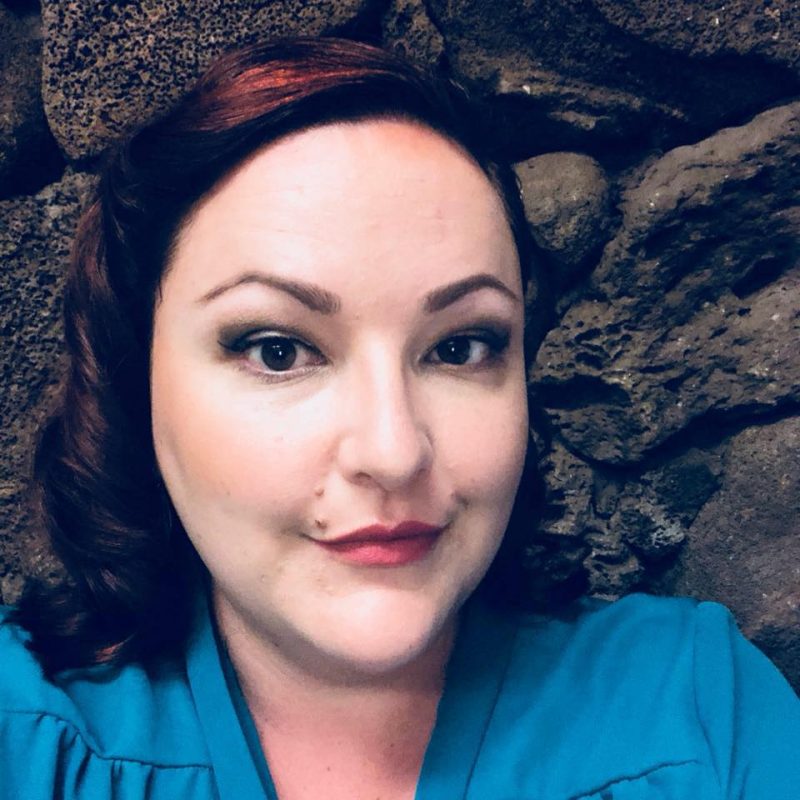“But what if I drop the baby?”: my life with postpartum OCD
I always wanted to be a mom. When I met my husband, even though we were young and knew that starting a family was years away, it was something we still talked about and planned for. We picked out names that we liked, talked about how we wanted to raise our hypothetical children, and looked forward to the time when we would finally be ready to start trying to get pregnant (well, at least I did).
We had been married for two years, together as a couple for seven, before I had finally convinced my husband it was time. We tried for six months before deciding to take a break from the grind (pun intended) in February of 2013, the reason being that we hadn’t gotten pregnant yet and we didn’t want to chance a Christmas baby. Unbeknownst to us at the time, I was already a few weeks pregnant. We found out the day before St. Patrick’s Day in 2013 that our baby was expected in early November.
We kicked everything into high-gear. I started a new, more stable job. We bought our first home and filled it with everything our baby girl would need. And finally, she arrived, nearly three weeks late after an emergency cesarean.
She was perfect.
We named her “Moira”, the Irish Gaelic form of the name “Mary”, which can be interpreted to mean “wished for child” because it was absolutely how I felt. I had wished for her for what felt like my whole life. I was ready — eager — to be her mother.
We went through the same growing pains as any other first time parents: how to soothe her when she cried, how to breastfeed, how to play with her and stimulate her when she was little more than a sentient potato. Since I have a history of depression and anxiety, my medical team monitored me fairly closely for postpartum depression, and because I was afraid of PPD myself, I frequently ran a self-inventory to assess my mental state. I was pleased to find that I didn’t feel any of those “baby blues”, but I did notice over time that my anxiety was increasing as I had frequent and more persistent intrusive thoughts about how fragile my happiness was.
It began small with the perfectly reasonable and common fear of SIDS. I don’t think there is any parent of any newborn anywhere that doesn’t nervously check on their baby while she is sleeping, just to make sure she is still breathing. Early on, I had Moira beside my bed in a co-sleeper so I could easily roll over and check on her throughout the night. She frequently took naps nestled into my chest during the day, and if I ever had her beside me on the couch or in my bed, I was sure to remove all blankets and pillows. I continued to be hypervigilant after she transitioned to sleeping in her own room, monitoring her sleep and her surroundings for potential threats to her safety.
This was a manageable, arguably even a reasonable, form of anxiety. But it grew into something much darker when I began to have obsessive visions of Moira being harmed. It was a very nuanced and insidious kind of anxiety — I wasn’t afraid that I would hurt her, and certainly didn’t feel compelled to do so, but the knowledge that I could hurt her, that she was so tiny and helpless, gave rise to a vivid waking nightmare that refused to cease. And it freaked me right the hell out.
One night while walking Moira back to her room to place her in her crib for the night, I passed by the stairs and glanced down at the dark, inky void that was the first floor of our home. Without thinking, I clutched Moira closer to my chest, as if that blackness might just reach up and rip her from my arms. She was so small. So delicate. A fall from a height no taller than my bed was potentially dangerous for her — if ever she fell from the second floor to the first, she would be horrendously injured. The instant this thought occurred to me, another more treacherous picture formed in my mind’s eye. Like an out of body experience, I watched as some demented version of myself stood at the banister, facing the void. Like a horror movie priestess offering up a sacrifice, she held Moira securely in her arms before slowly extending them over the precipice, positioning the baby’s little body directly over the landing on the first floor. As if entranced by some unknown ritual, she held Moira in this precarious position for only a moment before opening her arms and letting her fall. Moira stirred in my arms, bringing back into the now. Horrified and ashamed of myself for having this terrible vision, I hugged my baby tightly while my love for her and my sorrow for my traitorous, broken mind overwhelmed my senses.
I continued to have more gruesome waking nightmares, and I would replay them in my mind over and over in an endless loop. Visions of some alternative me, dropping the baby from some great height, forgetting or neglecting to buckle her into her car seat, leaving her alone in her playpen while I left the house — things that I knew, beyond any shadow of a doubt that I did not want to do, would never do. It was a lot like the classic sleepover game “Bloody Mary”. As children when we stood in the dark bathroom looking into the mirror, we did so unblinkingly, as if daring the ghost to appear and do her worst. But in quiet moments to myself, I would ruminate over the ghostly chant, “Bloody Mary, Bloody Mary, Bloody Mary”, over and over in my mind. Everyone knew if that you said it three times, she would appear. But what if I only thought it? What if I only said it twice? Could I be supernaturally compelled to say it a third time? I was afraid, but I couldn’t stop. I felt that I had to look at these scary thoughts, confront them, demystify them, and make them ordinary in order to be free of them.
I knew in my gut that I did not want to harm my child. Any time one of these unbidden images popped into my mind, my insides would squirm and contract in repulsion. But the thing that really frightened me was this: what the hell was wrong with me? What sort of faulty internal wiring caused me to have such evil thoughts? I was so desperately ashamed of myself. Was I a monster? Certainly, these neuroses weren’t normal, but I had no idea what caused this. I had heard all about postpartum depression, I had been counseled about the warning signs, and cautioned that the price of avoiding treatment was potentially disastrous if one were to develop postpartum psychosis. I didn’t feel depressed, but I did feel powerfully ashamed of myself. Despite all the education and anti-stigma campaigns that insisted mothers aren’t alone with their feelings of sadness, the things I was experiencing seemed too shameful to speak of. And because fear is a powerful inhibitor, I didn’t mention it to my doctors, certain that they would misunderstand me and think I was a danger to Moira.
I did my best to put those thoughts out of my mind. It got easier over time as Moira got older and more active, and I simply didn’t have the time to entertain such visions of potential dread. I also felt more confident as a parent, less anxious about my ability to care for her. Every so often, I would still get nervous about her safety: “What if someone runs up and snatches her while we’re at the park?”, “What if she climbs the bookshelf while my back is turned and falls and cracks her head open?” But those thoughts were more easily identified as distortions in my thinking and brushed aside. I felt pretty on top of this whole mothering thing, confident that my over-thinking was benign, but unfortunately, I had a saboteur in my midst.
Before I got pregnant with Moira, I had made friends with an older woman who was a colleague of mine. She was a veteran mother, and after Moira came along, she became increasingly invested in our lives as a surrogate mother to me and a grandmother to Moira. She even offered to babysit for us one day a week so we could save money on childcare. However, what began as a friendship became increasingly toxic as this master manipulator slowly but firmly enmeshed herself in my life. Often her unsolicited parenting advice served to undermine me and my husband, passively aggressively giving voice to all the doubts I had about myself as a parent. One particularly outstanding example came when I consulted this person after reading an article about the importance of routines in a baby’s life. I wasn’t sure that we provided Moira with a hard-and-fast daily routine, and I wanted this woman’s reassurance that we were still doing okay, that it wasn’t a big deal. That was my instinct, after all. Moira was six months old, and we more or less followed her lead: fed her when she indicated she was hungry, let her sleep when she was tired. She mostly did those things at around the same time every day — did Moira really need us to keep to a regimented schedule? When I asked this of my “friend”, she responded with derision: “Of course she has a routine! She has a routine when she’s with me; you mean that you and your husband don’t do the same thing?”
Though she would later claim that she was responding to my question with humor, her flippant comment threw me into an instant tailspin. Part of it, I now understand, was cognitive dissonance caused by experiencing such mistreatment from someone I loved and trusted. The other part of it, however, was a resurgence of that same insecurity: What if I’m broken? What if I’m incapable of being a good mother? After months of tenuous calm, the obsessive thoughts about unintentionally harming my baby again overtook my mind. I began to envision all the ways she could be irrevocably fucked up due to my lousy parenting. I was afraid and devastated, and because I knew I needed help (in more ways than one), I finally brought it with me to therapy.
Squirming in the chair across from my therapist with my eyes fixed on the floor by his feet, I confessed to him, “I think I’m a lousy mom. I keep having these terrible visions of all the ways that I could fail her or hurt her.” When I explained about the obsessive visions of dropping the baby, he stopped me, “But you never feel like you want to drop her.” It wasn’t a question.
“No! Of course not! But then why am I having these thoughts? A good mother wouldn’t think these things!” Postpartum psychosis was my own personal boogeyman — I had read about mothers who, left untreated, had done horrible things that destroyed their families. I was beyond terrified that I was irrevocably set on a similar path of self-destruction.
“I have to challenge you about what a ‘good mother’ looks like,” he said. “You love Moira, you provide for her every need, you comfort her when she needs comforting, and you nurture her to learn, and experience, and grow. Those are all things that good mothers do.”
He went on to explain that the uncontrollable, recurring thoughts that I had had since giving birth, along with the general anxiety about my ability to parent, were likely due to postpartum obsessive compulsive disorder. Professionals estimate that two to three percent of women experience PPOCD, which can manifest as obsessive, intrusive thoughts and fears about baby’s safety, including behaviors like excessively washing or sterilizing baby bottles, excessively washing baby clothing, or washing other family members’ clothing repeatedly, isolating the baby to keep family members or others from “contaminating” the baby, constantly checking on the baby, and finally, like me: experiencing persistent and horrifying fears of harming one’s child.
Knowing that I already had a diagnosis of generalized anxiety disorder, my medical team wasn’t surprised that I had developed PPOCD. Neither was I, once I finally understood what was happening, but I was a little pissed off. Why wasn’t there a goddamn pamphlet about this craziness in my OB’s office? Two to three percent of women isn’t a negligible number — where was the social media hashtag to raise awareness for our plight? While I was thankful that I had a diagnosis and that it was treatable, I was saddened that it had taken almost a year to arrive at that point.
Ultimately, I was able to overcome PPOCD the same way I fight many of my irrational anxieties. Once I had information and an outsider’s perspective, I felt validated and in control. Through treatment I came to understand that my fears were baseless, amped up by my underlying anxiety disorder and further exacerbated by a person with whom I had an abusive relationship. The catalyst was my wonky brain and it’s misguided fight-or-flight mechanism, not any actual failures on my part as a parent. I was okay, and my daughter was okay, and we could carry on confident in the fact that we would be just fine. It was a tremendous relief.
If you can identify with any of these feelings of anxiety, or if you suspect that that you are also experiencing some sort of postpartum depression or anxiety, you are not alone. Help is available to you, and treatment is essential to your health and the health of your children. There is no shame in mentioning these thoughts and feelings to your doctor or another medical professional — I know it’s cliche, but truthfully, they really have heard worse. Get help because you deserve to feel good about yourself as a parent. One might even say that that is what good mothers do.
Sarah Comerford is the Assistant Vice President of Franchise Operations at Stigma Fighters. She is a professional ASL interpreter, a wife, mother, counselor, advocate, and a survivor. She is also a hedgewitch & intuitive reader. Read more from Sarah on her blog and find her Twitter.









Leave A Comment